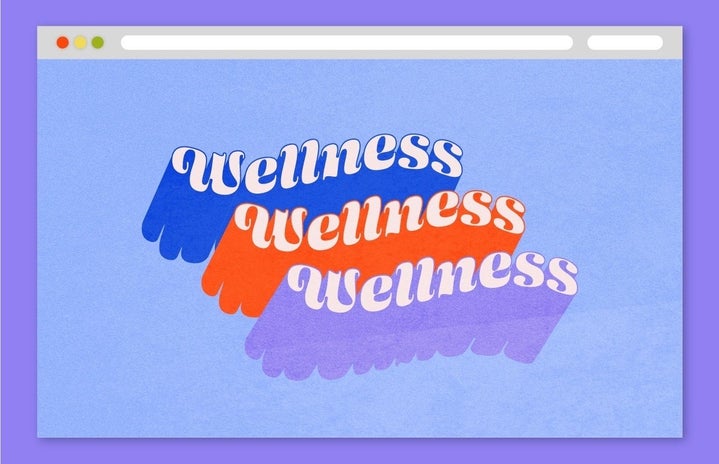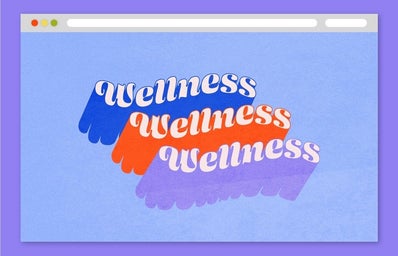“Positive vibes only” has become a frequent phrase used in our collective vocabulary, and I’ve noticed its increase in use during the past few years. Some people use it ironically, while others truly believe in the “positive vibes only” mentality wholeheartedly. Now, I’m not saying that wanting to be surrounded by happiness and goodness is a bad thing – I can’t think of anyone who likes to be surrounded by sadness. But this whole “positive vibes only” thing becomes problematic when the people spouting it completely turn their backs on ‘uncomfortable’ or ‘hard’ emotions like disappointment, sadness, and anger and use spirituality as a justification for this avoidance. This is when “positive vibes only” becomes spiritual bypassing.
Spiritual bypassing can seem similar to toxic positivity in that in both cases, one uses positivity to repress so-called ‘negative’ emotions. I won’t discuss toxic positivity in this article, but if you’d like to learn more, check out my previous article on toxic positivity here!
Spiritual bypassing is distinct from toxic positivity because it’s not just about only surrounding yourself with positive people and things – it goes one step further and uses spirituality as the vehicle to avoid, repress, and escape from certain emotions and feelings. What I mean by this is:
- Believing you’re too “enlightened” for and “above” ‘negative’ emotions to feel and discuss them, which is a self-righteous mindset that I’ve noticed can often accompany certain individuals who partake in yoga, meditation, or crystal healing practices.
- Yet, in saying this, keep in mind that this is not an “all or nothing” assertion; not everyone who practices yoga, meditation, or crystal healing participates in spiritual bypassing, and not everyone who is a spiritual bypasser does yoga, meditation, or crystal healing.
- Using phrases like “I’m manifesting my desires/goals” or “I’m putting this thought/desire out into the universe” to give the allusion that you’ve done some sort of action – i.e., turning a thought or belief into physical form (Mahdawi) – but in reality, you’ve used the idea of spirituality to justify inaction. If I want to do well on a test, I have to actually take action and study – I can’t just “manifest” or put this desire “into the universe.”
- I will note that “manifesting” or “putting desires/thoughts into the universe” and taking concrete action to achieve your desires and goals is different from simply just “manifesting.”
- Using spiritual practices to compensate for feelings of low self-esteem, anger, social isolation, and grief, which is something Dr. Diana Raab points out in her article “What Is Spiritual Bypassing?”
Psychotherapist John Welwood, who coined the term “spiritual bypassing,” believed that using spirituality in this way was actually a corruption of true spiritual practices, and he defined spiritual bypassing as using “spiritual ideas and practices to sidestep personal, emotional ‘unfinished business,’ to shore up a shaky sense of self, or to belittle basic needs, feelings, and developmental tasks” (Raab). Basically, spiritual bypassing comes in many shapes and sizes, and, like toxic positivity, that’s what makes it difficult to pin down – but that’s also why it’s so important to become familiar with these concepts so that we can recognize the true meaning that lies behind such language and actions (or inactions).
Let me clarify something here: I by no means suggest that spirituality is inherently toxic and that we shouldn’t engage with it. Spirituality can be a wonderfully supportive and empowering thing in peoples’ lives! But it becomes a problem when you refuse to engage in hard conversations with friends and family (and even yourself!) simply because you only wish to surround yourself with “positive vibes.” As a consequence, this can negatively impact the relationships with those closest to you. Eventually, those friends or family may stop approaching you about certain things going on in their lives – such as difficulty at school or work, conflict in relationships, mental health struggles, or even just their own emotions and feelings – or they may stop approaching you altogether because you’ve made them feel like you don’t want them around unless they’re in a happy state, and nobody’s happy all of the time. This unrealistic expectation – of expecting people to only engage with happiness – can make people feel like they can’t be themselves around you.
In her article, “The Danger in Fake Positivity and Spiritual Bypassing,” Vanessa Bennett notes how spiritual bypassing can perpetuate mental health stigma: “Encouraging someone who has clinical depression to focus on the positive is not helpful and can actually do more harm. This advice can bolster the feeling that they are at fault because they cannot simply pull themselves up by the bootstraps.” Bennett’s statement pinpoints the notion that spirituality cannot ‘fix’ a person’s mental health – or any kind of health, for that matter. Suggesting that it can is dismissive and misguided, and in some instances it can actually place blame on the person with health struggles because it suggests that they aren’t doing spirituality ‘enough’ or the ‘right way,’ so it’s their fault that they’re still struggling. In this way, spiritual bypassing works to silence conversations around mental health entirely, effectively leaving people struggling with their mental health to suffer in silence.
Not only does spiritual bypassing harm others, but it can damage us, too. “Painful or uncomfortable experiences enable us to grow past our current emotional and spiritual states,” writes Bennett, and “challenge, sorrow, change, discomfort, conflict, hatred…are paths to growth and change.” If we don’t allow ourselves to feel and express ‘hard’ emotions like sadness, grief, and anger, we cannot continue to grow as people. And yes, sometimes these emotions are uncomfortable! But staying within our comfort zones is not how we grow and discover more about ourselves as people. Spiritual bypassing prevents us from growing, changing, and “truly learning who [we] are” (Bennett), and ultimately, it keeps us (and our relationships) from thriving and flourishing.
Works Cited
Bennett, Vanessa. “The Danger in Fake Positivity and Spiritual Bypassing.” Human Parts, 20 March 2018, humanparts.medium.com/the-danger-in-fake-positivity-and-spiritual-bypassing-c202040b8dd3. Accessed 6 April 2022.
Mahdawi, Arwa. “Manifesting: The Problem with 2020’s Biggest Wellness Trend.” The Guardian, 28 Oct. 2020, www.theguardian.com/commentisfree/2020/oct/28/manifesting-the-problem-with-2020s-biggest-wellness-trend. Accessed 6 April 2022.
Raab, Diana. “What Is Spiritual Bypassing?” Psychology Today, 23 Jan. 2019, www.psychologytoday.com/ca/blog/the-empowerment-diary/201901/what-is-spiritual-bypassing. Accessed 6 April 2022.


